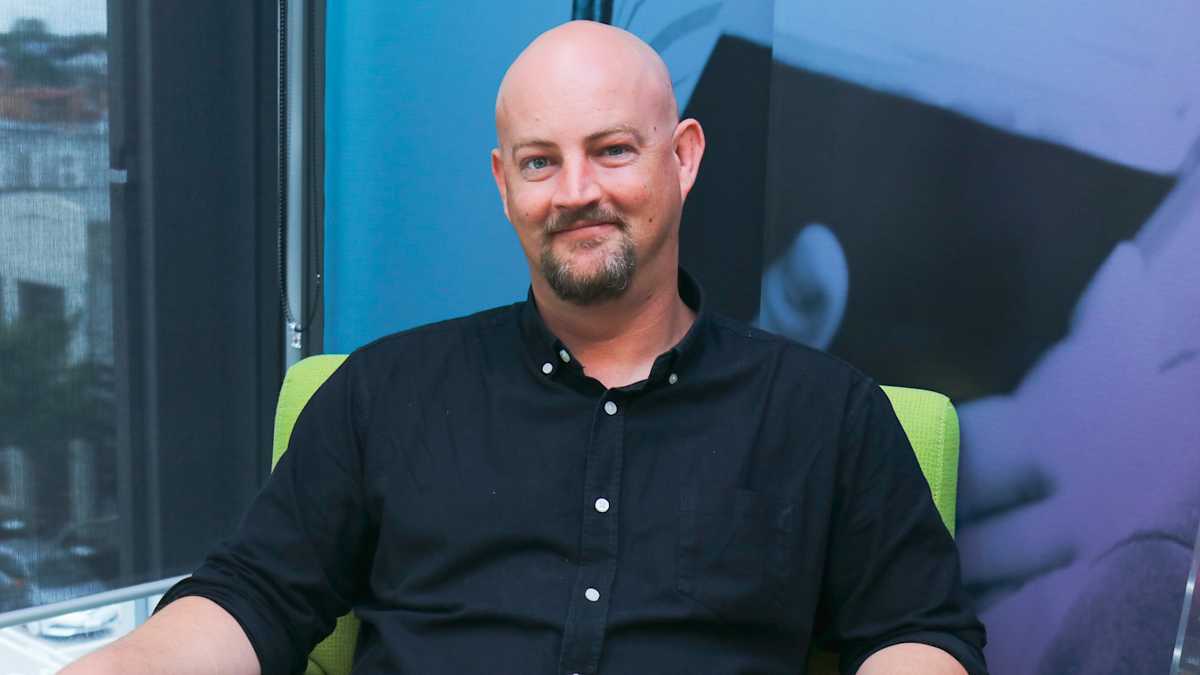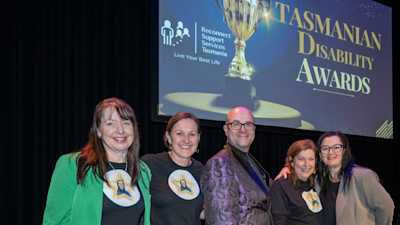Ever wondered what goes on inside the Life Without Barriers’ Practice and Quality team? Find out as we chat with Strategy and Support Officer, Chris Hadfield.

Life Without Barriers is a big organisation, made up of over 7000 staff across Australia who each play an important role in how we provide services. From staff who directly deliver support, staff who research and shape the policies we all follow, to finance staff who manage all payments and funding – every person plays a part.
Showcasing the diversity and breadth of people that make us, well, us, Life Without Barriers is introducing a new series, ‘Five Minutes With’. For our first instalment, we chatted with Chris Hadfield from Life Without Barriers’ Practice and Quality team about how he contributes to our support services.
Name: Chris Hadfield
Role: Strategy and Support Officer, Practice and Quality
LWB location: Richmond, VIC
Q. How do you describe your job at Life Without Barriers?
On paper, my role is Strategy and Support Officer in the Practice and Quality team. I report to the Executive Director, Mary McKinnon, and no two days are the same. Among other things, I help to research, develop and produce various strategies for how we as an organisation deliver support to people. In other words, my job is to help guide decisions around future projects because I’m always researching if there’s a way we can do it better. I also write reports on pretty much everything under the sun for our Executive leaders, which gives me incredible insight into how Life Without Barriers operates. I also get to represent the team at many events and seminars and get trained in different practice models so that knowledge may help us to improve our own strategies.
Q. What about it gets you out of bed every morning?
It’s a challenging role that throws up something different almost every day. I’ve learnt and achieved things I didn’t even know I was capable of and I’ve been well supported to constantly go beyond my comfort zone. I’m also really eager to look for ways to improve outcomes for the people we partner with, so it’s great to be part of a team that is almost intimidatingly passionate and skilled in doing precisely that. Ultimately though, it’s getting to be part of an organisation that really does strive every day to do its best and to influence society as a whole to be better. That’s a massive privilege and worth getting out of bed for!
Q. What’s been your favourite memory since working at Life Without Barriers?
Reconciliation is really important to Life Without Barriers, and last year I got to be involved in the working group that helped develop our next Reconciliation Action Plan (RAP) – it was pretty incredible. The group spent hours discussing and thinking deeply about what Life Without Barriers could and should be doing to take our commitment to Reconciliation even further, from the really practical to big ideas that will really challenge us. Every value was in action – imaginative and open to new ideas, relationships were central, people showed courage to speak up on difficult issues while being completely respectful. Even when there was disagreement, the group was responsive and could generate ideas that considered views and consultations around the country to shape the final product. It all really confirmed that the Life Without Barriers values are a living part of the way we conduct ourselves.
Q. What are you working on at the moment that really excites you?
One thing that comes to mind is an ‘education campaign’ that we’re developing in partnership with the Youth Plus Institute. The basic gist is that we’re gathering the best available research and insight to put together a campaign to promote the importance of access to education for children and young people in out of home care. Education is so important to the development of children, from any walk of life, because it opens the doors to opportunities for the rest of their life. It’s going to include info and resources for carers and staff to help them advocate for kids if they’re having issues with school and to empower them to take a lead in their education through initiatives like guided reading. We’ll also be looking at systemic barriers to access education for kids in care and how schools can better partner with them to achieve their goals. All of this is underpinned by the UN Declaration of the Rights of the Child’s assertion that education is a human right.
Q. What’s a secret fact about you that your colleagues don’t know about?
I’ve played guitar, drums, bass and even ‘sung’ in a number of death and doom metal bands over the years. I also do the Times Cryptic Crossword every day.


